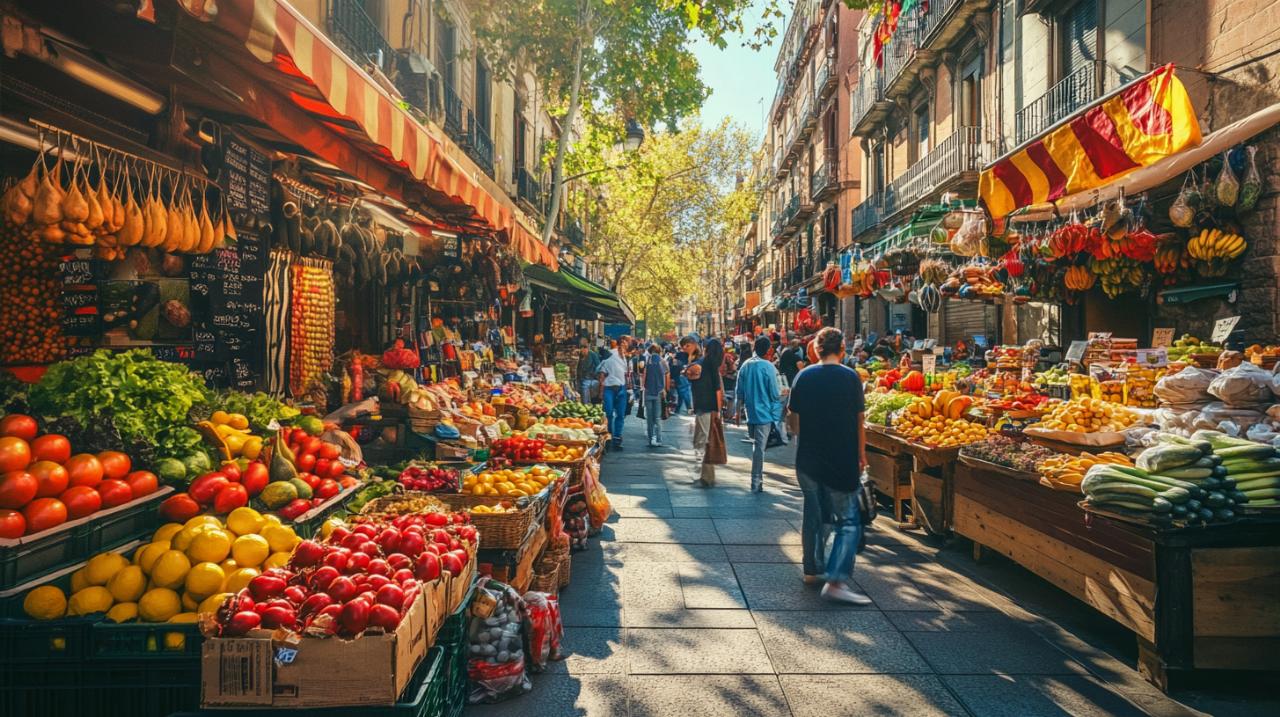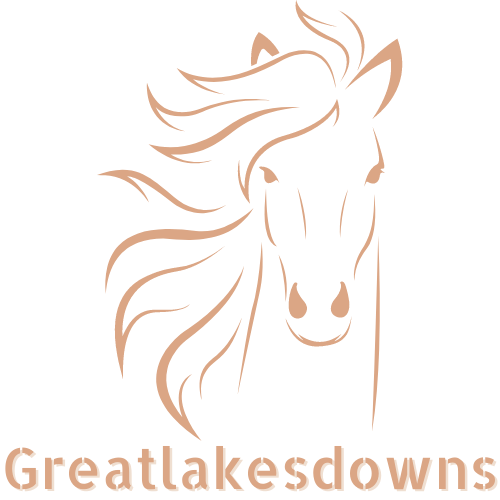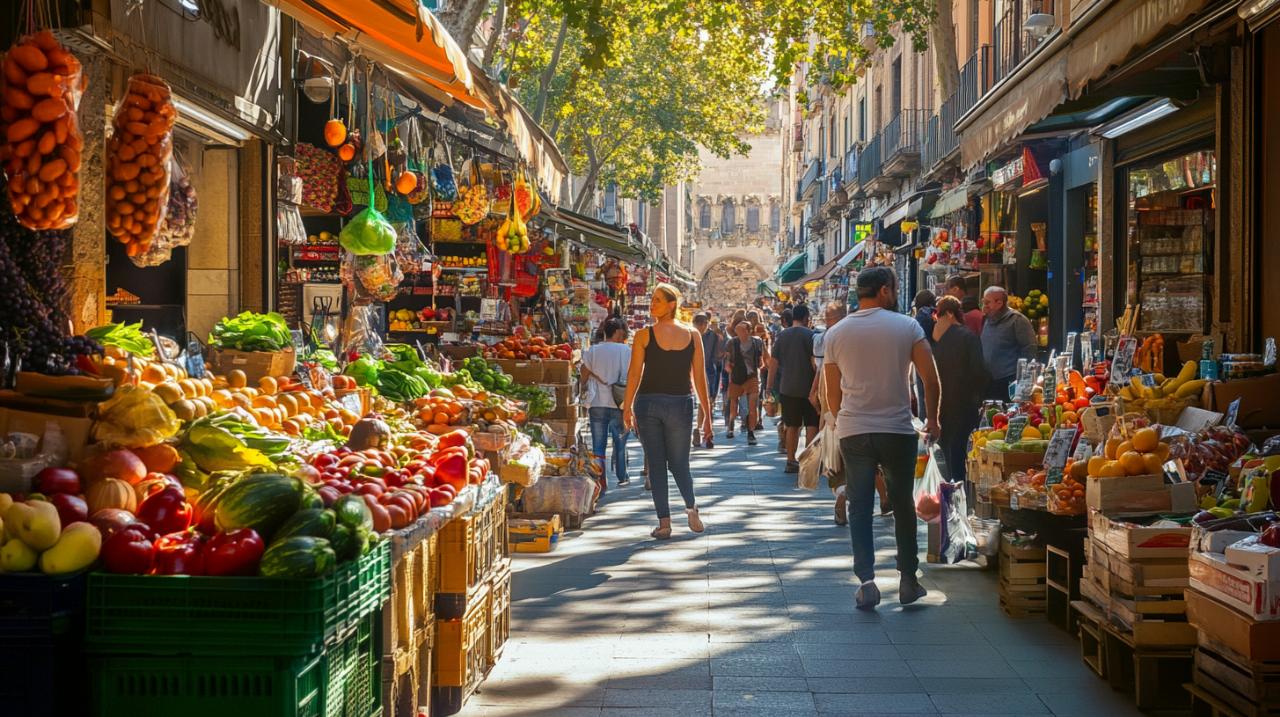Barcelona offers a treasure trove of opportunities for savvy shoppers seeking to reduce their grocery bills whilst supporting the community. By connecting directly with local producers and exploring the city's vibrant network of markets and specialist suppliers, you can discover fresher ingredients at more competitive prices. The key is knowing where to look and understanding which labels signify genuinely local products. Whether you're a resident or simply spending an extended stay in the Catalan capital, these strategies will help you shop smarter and enjoy the authentic flavours of the region without breaking the bank.
Discovering barcelona's local markets and suppliers
Why cutting out the middleman saves you money
One of the most effective ways to lower your grocery costs in Barcelona is to eliminate the intermediaries between you and the source of your food. When you purchase directly from local producers, you avoid the markups that retailers and distributors add at each stage of the supply chain. This approach not only reduces your expenses but also ensures that more of your money goes directly to the farmers, bakers, and artisans who craft the products. Many locals have long understood this principle, which is why traditional shopping habits in Barcelona still involve visiting specialist shops such as fruiterias for fresh produce and carnicerias for quality meat. These establishments often source their goods from nearby suppliers, meaning you benefit from both competitive pricing and superior freshness. Furthermore, by shopping at local markets and engaging with producers, you gain insight into seasonal availability, which can guide you towards the best value items at any given time of year. Building relationships with stallholders can also lead to special offers and recommendations that you would never encounter in a large supermarket. For those willing to venture beyond the usual tourist haunts, the rewards are substantial.
Exploring beyond la boqueria: hidden gem markets worth visiting
Whilst La Boqueria Market remains a must-see destination for its vibrant atmosphere and impressive array of fresh produce, it is worth noting that its central location on Las Ramblas often attracts tourists, which can drive prices upwards. To truly experience the best of Barcelona's market culture and secure better deals, consider exploring the neighbourhood markets that locals frequent. Mercat de Sant Antoni, for instance, has earned a reputation as a favourite among residents for its reasonable prices and excellent selection of fresh goods. This market offers a more authentic shopping experience and allows you to mingle with Barcelonans going about their daily routines. Other neighbourhood markets scattered throughout the city provide similar advantages, each with its own character and specialities. Visiting these markets at the end of the trading day can be particularly rewarding, as stallholders are often more willing to negotiate prices in order to clear their remaining stock. Additionally, smaller markets tend to have a more relaxed pace, giving you time to chat with vendors and learn about their products. Many of these traders source directly from farms in the surrounding countryside or from artisan producers in Catalonia, ensuring that the goods you purchase are both fresh and locally grown. By making these markets part of your regular shopping routine, you not only save money but also contribute to the sustainability of local food systems. To further discover opportunities for cheaper goods in Barcelona and connect with local producers, you might visit zonaprecio.es, which can provide additional resources and information on sourcing directly from suppliers.
Understanding local labels and certification schemes

What 'Km 0' and 'Producte de Proximitat' Really Mean
Navigating the world of local food labels can initially seem confusing, but understanding a few key terms will help you identify products that are genuinely sourced from nearby producers. The label 'Km 0' is widely used in Barcelona and throughout Catalonia to denote food that has travelled minimal distance from its point of production to the place of sale. This designation not only supports environmental sustainability by reducing transportation emissions but also ensures that the produce you buy is fresher and often more affordable due to lower logistics costs. Similarly, the term 'Producte de Proximitat' translates to 'local product' and indicates that the item has been grown, raised, or made within a relatively short distance of the market or shop where it is sold. These labels are becoming increasingly common as consumers become more conscious of the environmental and economic benefits of supporting local agriculture. By choosing items marked with these designations, you are effectively cutting out long supply chains and the associated markups, which translates into better value for your money. Moreover, local producers are often more transparent about their farming or production methods, allowing you to make informed choices about the quality and origin of your food. Keep an eye out for signage and stickers bearing these terms when you shop at markets and specialist stores, as they are a reliable indicator of authenticity.
How to Spot Genuinely Local Products in Barcelona
Identifying truly local products amidst the wide array of goods available in Barcelona requires a bit of vigilance and knowledge. Start by asking stallholders and shop assistants about the origin of their products; most are proud to share details about their suppliers and the regions from which their goods come. Look for references to specific towns or areas within Catalonia, such as Penedès for wine or Priorat for robust reds, as these geographical markers often signal that the product is locally sourced. Additionally, many markets and shops display information about the producer, including farm names and locations, which can help you verify the authenticity of the claim. Shopping at queviures, the traditional general stores that have been part of Barcelona's retail landscape for generations, is another excellent way to find genuine local products. Establishments like Colmado Murria and Colmado Quilez-La Fuente have long-standing relationships with local suppliers and stock a range of canned fish, cured meats, and artisan cheeses that reflect the culinary heritage of the region. Bodegas, or wine shops, offer another avenue for discovering local treasures, often selling wine directly from the barrel and featuring selections from nearby vineyards. When shopping at larger supermarkets, look for own-brand products from chains like Mercadona, which often source locally and offer competitive pricing under labels such as Hacendado. Organic food shops like Veritas also emphasise local and sustainable sourcing, though prices may be higher due to certification costs. By combining these strategies and remaining curious about the provenance of your purchases, you can confidently fill your basket with genuinely local products that support the regional economy and offer excellent value.

